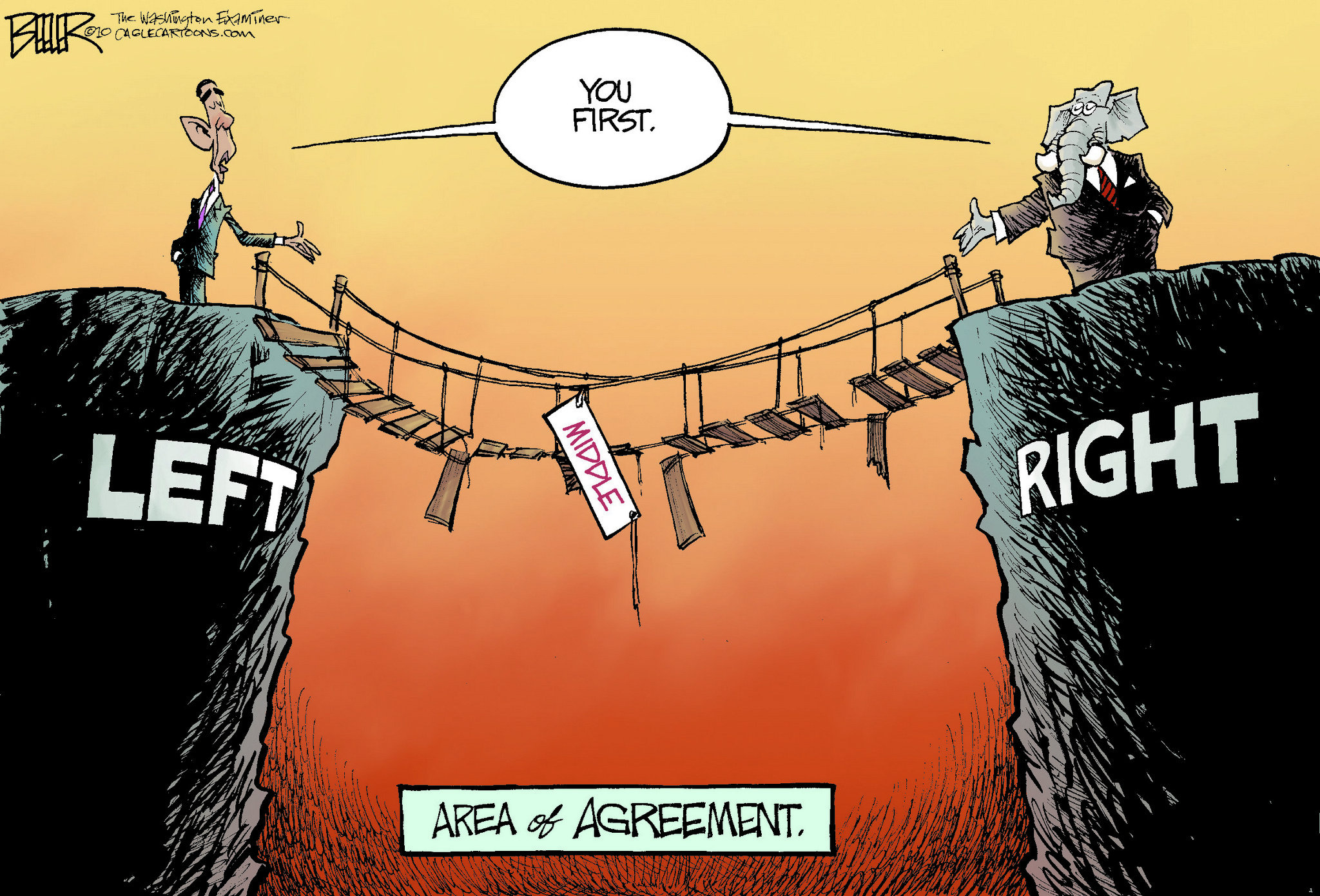
The growing gap between Left and Right in politics is plain for all to see. It provoked the following thoughts , with a special focus on western societies. Don’t take them too seriously, or too lightly.
If you want to please the Right, tell them that:
- climate change isn’t man-made,
and it will save them reconsidering their life style; - migrants undermine our job security,
and it will save them expressing some solidarity; - Islam is a threat to society,
and it will save them investing in appreciating Muslim citizens; - the West needs protection from the rest,
and it will save them fixing its flaws.
If you want to please the Left, tell them that:
- capitalism is evil,
and they will feel good about consuming without a peace of mind; - we are facing catastrophe,
and it will give them a purpose in life that makes them thrive; - we need to stand up for the poor and oppressed,
and they will ignore any progress to not ruin their anger; - it’s all about speaking against injustice,
and they will love their own clarity of right and wrong.
In short:
Want to please the Right? Ease their conscience.
Want to please the Left? Stir their conscience.
False clarity
- The Right sees in any Muslim a potential terrorist, in any migrant a potential criminal, in any call for tolerance or equality a conspiracy of Cultural Marxists.
- The Left sees in any Muslim a victim of Islamophobia, in any migrant a victim of oppression, in any free market defense an exploitation of the weak.
- In short: the Right sees too many perpetrators, the Left too many victims. It gives the Right a continuous right to protect, the Left a continuous right to accuse.
Both wings cannot stand the temptation of making the world look clearer than it is. For the Right, everything looks like a threat that requires self-defense. For the Left, everything looks like injustice that requires solidarity with the oppressed. The latter sounds more noble than the first, and so the Left doesn’t hesitate taking the moral high ground in debates. The Right, on the other hand, accuses the ‘multicultural’ and ‘egalitarian’ Left of destroying ‘Western’ (if not ‘Christian’) values and traditions. And so, Left and Right feel morally empowered to fight each other in a never-ending trench war.
How to combine the positives in both
Without pretending that this trench war can be ended easily, here are a couple of ways in which Left and Right can move towards more unity:
- The Left needs a deeper recognition of western achievements, if it wants to connect with the protecting attitude of the Right.
- The Right needs a deeper recognition of western flaws, if it wants to connect with the correcting attitude of the Left.
- The Left needs more celebration and self-criticism. It is so obsessed with fighting injustice, that there is hardly space for celebrating past achievements and recognizing the limitations of their own understanding.
- The Right needs more compassion and solidarity. It is so obsessed with self-protection, that there is hardly space for seeking the well-being of other nations and the entire planet.
Sounds all good ‘on paper’, these recipes for unity, but profound mentality shifts are usually not a matter of the will but of necessity, of circumstances that demand a radically different response. Let’s hope that Left and Right will read the ‘signs of the times’ in time and need only ‘mild’ circumstances to acknowledge the necessity of overcoming their differences and pursuing a united and sustainable way forward.
